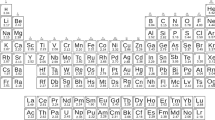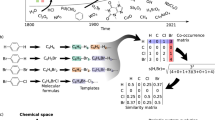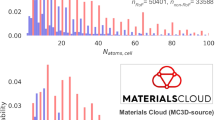Abstract
THE theory of allotropy, starting from the supposition that every state of aggregation (phase) of a so-called simple substance (system of one component) is complex, that is, consists of different molecular species, and stating that behaviour as a simple substance is only due to the rapid establishment of equilibrium between these different kinds of molecules (inner equilibrium), has led, when applied to metals, to a theory of electromotive equilibrium. Herein it is assumed that with metals the complexity consists, in the existence of atoms, ions (of the same or of different valency) and electrons. These various particles give rise to an inner equilibrium which in the simplest case is represented by the formula: in which v indicates the number of positive charges on the metal ion, and the suffix s that the solid state is being considered.
This is a preview of subscription content, access via your institution
Access options
Subscribe to this journal
Receive 51 print issues and online access
$199.00 per year
only $3.90 per issue
Buy this article
- Purchase on Springer Link
- Instant access to full article PDF
Prices may be subject to local taxes which are calculated during checkout
Similar content being viewed by others
References
See “The Theory of Allotropy,” p. 130.
Author information
Authors and Affiliations
Rights and permissions
About this article
Cite this article
SMITS, A. Transformations of Elements. Nature 114, 609–610 (1924). https://doi.org/10.1038/114609b0
Issue Date:
DOI: https://doi.org/10.1038/114609b0
Comments
By submitting a comment you agree to abide by our Terms and Community Guidelines. If you find something abusive or that does not comply with our terms or guidelines please flag it as inappropriate.



